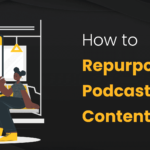Starting a podcast can be an exhilarating journey, but one of the most critical decisions you’ll face is choosing the right topic. Your podcast topic sets the tone for your show, dictates your content strategy, and influences your potential audience’s engagement. In this guide, we’ll explore some of the best podcast topics and provide a framework for selecting a topic that resonates with both you and your audience while adhering to the principles of Expertise, Authoritativeness, and Trustworthiness (E-A-T).

1. Start with Your Passion and Expertise
The best podcast topics often stem from personal interests and expertise. According to a survey by Statista, 42% of podcasters choose topics they are passionate about, leading to greater engagement and longevity. Consider subjects you’re passionate about or areas where you possess substantial knowledge. Here are some ideas:
- Personal Experiences: Share stories about your life, travel, or unique experiences that can resonate with others.
- Hobbies: Discuss your favorite hobbies, whether it’s gardening, cooking, or gaming, and share tips and insights with fellow enthusiasts.
Choosing a topic you genuinely enjoy will maintain enthusiasm and authenticity, making it easier to produce engaging content consistently.
2. Identify Your Goals
Before settling on a topic, clarify your objectives for starting a podcast. Common goals include:
- Entertainment: If your aim is to entertain, consider topics like pop culture, comedy, or storytelling.
- Education: If you want to inform or educate, think about subjects like personal finance, technology, or wellness.
- Community Building: If your goal is to connect with like-minded individuals, explore niche interests or shared passions.
Defining your goals will help you select a podcast topic that aligns with your intentions and enhances your authority in that space.
3. Explore Popular Niches
Investigate trending topics within the podcasting landscape. While you shouldn’t solely focus on what’s popular, understanding current trends can provide inspiration. According to Podcast Insights, some of the most popular podcast genres include:
- True Crime: A perennial favorite, true crime podcasts explore unsolved mysteries or notorious cases, with some shows amassing millions of downloads per episode.
- Health and Wellness: Discussions about mental health, fitness, nutrition, and holistic living are gaining traction, with a market projected to reach $3.5 billion by 2026.
- Technology and Innovation: Delve into emerging technologies, startups, or industry insights.
Research what others are doing in these niches and think about how you can offer a unique perspective that establishes your authority.
4. Assess Your Audience’s Needs
Understanding your potential audience’s needs is crucial for choosing a podcast topic that will engage listeners. Here are some strategies to consider:

- Conduct Surveys: Use social media or email lists to gather insights about what topics your audience wants to hear.
- Explore Online Communities: Engage in forums, social media groups, and other online communities to identify common questions or interests.
By addressing unmet needs, you’ll create valuable content that resonates with your audience and establishes your expertise.
5. Evaluate the Depth of Your Topic
Some topics have more potential for ongoing content than others. When considering a podcast topic, ask yourself:
- Is It Evergreen?: Topics like personal finance, self-improvement, or health tend to have lasting relevance, allowing for ongoing discussions.
- Is It Expandable?: Consider how your chosen topic can evolve over time. For instance, a podcast about wellness can expand into nutrition, fitness, or mental health.
Choosing a topic with depth ensures you’ll have enough material for multiple episodes and the opportunity for future growth.
6. Look at What Others Are Doing
Analyze other podcasts in your chosen niche to understand what works and what doesn’t. Consider:
- Unique Selling Points (USPs): Identify what makes other podcasts successful. It could be their format, guest appearances, or storytelling style.
- Content Gaps: Look for areas that are underrepresented in existing podcasts. Filling these gaps can help you stand out in a crowded market.
This research not only helps you identify potential competitors but also strengthens your authoritativeness in the field.
7. Calculate the Required Commitment
Different podcast topics come with varying levels of research and preparation. Before making a decision, consider:
- Research Needs: Some topics may require extensive research, while others allow for more casual conversations. Assess how much time you can realistically devote to preparation.
- Episode Structure: Think about whether you want a scripted show, interviews, or casual discussions. This will influence your workload and the overall flow of your podcast.
By understanding the commitment required, you can choose a topic that fits your lifestyle and ensures consistent content creation.
8. Collaborate with Influencers
Podcasts thrive on collaboration. Consider reaching out to influencers or experts in your niche for guest appearances. This can enhance your content and help expand your reach.

- Networking: Attend industry events, join relevant online groups, or use social media platforms to connect with potential guests. This not only broadens your audience but also establishes your podcast as a credible source of information.
9. Think About Monetization
If you plan to monetize your podcast, consider how your chosen topic might attract sponsors or advertisers. Popular niches often have established brand partnerships.
- Sponsorship Opportunities: Research brands relevant to your topic that might be interested in sponsorship deals once your podcast gains traction. According to Nielsen, podcast advertising revenue is projected to reach $2 billion by 2023, making it a lucrative market.
10. Start Small and Expand
It’s perfectly acceptable to start with a narrow topic and expand over time. For example, you might begin with a podcast focused on “vegan cooking” and later branch out to include interviews with nutritionists or discussions about sustainable living.
Conclusion
Choosing the best podcast topic is a vital step in your podcasting journey. By starting with your passions, understanding your audience, and evaluating the depth and monetization potential of your topic, you’ll be well on your way to creating a podcast that resonates with listeners. Remember, the key to a successful podcast lies in your unique perspective and the value you provide to your audience. If you’re ready to take the plunge, check out Podzay.com for tools and resources to connect with potential guests and grow your podcasting journey. Happy podcasting!







